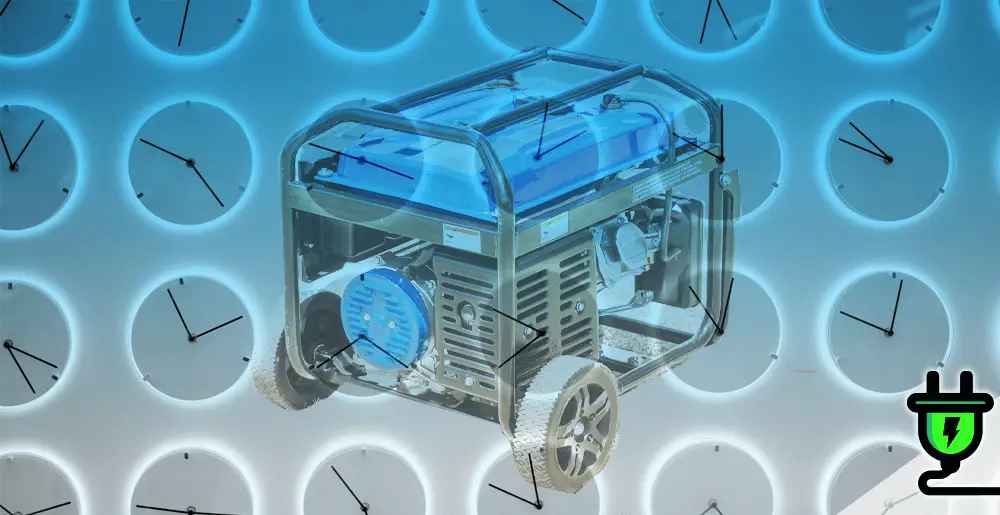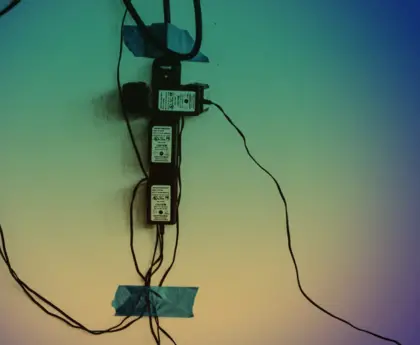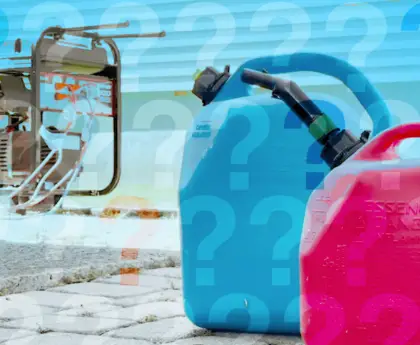A portable generator can be a lifesaver when you are suffering from a power outage, but it’s very important that you know how to use one. Have you ever wondered, how long can you run a portable generator?
Portable generators are not intended to be run for enormously long periods; they are designed to provide short-term power in the case of an emergency, or during something like a camping trip. Their runtime will depend on your model, but most gas generators only run for up to 18 hours.
While portable generators are designed to be used for short periods of time, you may need to run them longer due to extended power outages. Depending on the type of fuel the generator uses will largely determine how long the generator can run continuously.
But fear not, we’re going to explore how long can you run a portable generator for safely. Then we will get into some tips to make sure your generator stays healthy if needing to run for extended periods.
Let’s get into this!
Two Factors That Determine How Long You Can Run A Portable Generator For
How long can you run a portable generator depends to some extent on the kind of generator that you wish to run and what kind of fuel it needs.
To be more specific, there are two main factors that limit your generators continuous run time: fuel type and engine oil.
Let’s dive into each and expand on these topics.
Fuel Type
What kind of fuel does your portable generator use? Depending on the answer, you might be able to keep it running for a good amount of time.
If you have a gas generator, for example, you will probably be able to run it for between 6 and 18 hours, depending on the tank size, the brand, and the power usage. Some may run for longer.
You will then need to stop and refuel the generator, allowing it to cool down in between. Never refuel the generator while it’s running or hot.
Alternatively, you might be running a propane generator, which can run for much longer, but will still need maintenance checks every so often.
Most propane generators can run for around 150 to 200 hours before they run out of oil, and at this point, they need to be switched off and refueled.
If you’re running a diesel generator, you can expect to get at least 24 hours before needing to refuel. However, it’s always a good idea to keep an eye on the fuel gauge and have a plan in place in case you need to refuel sooner than expected.
Engine Oil Demands
The oil in the portable generator is essential. Not only does it lubricate the engine, but it also helps keep it cool. Without it, the engine would quickly overheat and break down.
And even if you had a large fuel tank that didn’t need to be refueled for days, the oil in the portable generator will eventually run low.
On average, most portable generators will run low on oil after about 150-200 hours of use. It’s always best to check the oil level every time you need to add fuel.
Many modern generators are equipped with an automatic shut off when the oil runs low. This is a great feature as it protects the generators engine in case of a low oil situation.
Other Factors That May Limit How Long You Can Run a Generator
The heat is also an important consideration when it comes to propane generators, because they will overheat if you run them for too long. In general, about one day of continuous use is all they can handle before they need to be switched off and cooled down.
This is even more important if they are operating in hot weather, so be particularly careful in summer, or you might damage your generator.
Some people use ice and fans to keep the engines cool, but you still need to exercise caution.
Conclusion
There is no easy answer to how long can you run a portable generator, because it depends heavily on the style of the generator, what sort of power you are drawing, and the fuel capacity.
Although portable generators provide a convenient way to have power in the event of an emergency, there are some things you should keep in mind when using them. First and foremost, portable generators are not intended to be run for enormously long periods; they are designed to provide short-term power in the case of an emergency, or during something like a camping trip. Their runtime will depend on your model, but most gas generators only run for up to 18 hours.
Another important thing to remember is that portable generators can be dangerous if used improperly. Carbon monoxide poisoning is a real risk if the generator isn’t set up properly or vented correctly, so it’s important to take all necessary precautions.
Finally, always make sure you have a plan for what you’ll do once the power comes back on – portable generators aren’t meant as a permanent solution!




